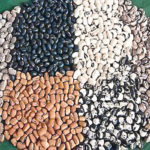Global seed companies are designing their products to tackle the impact of climate change and address nutrition needs, but emerging economies still experience limited access to quality seeds with the global seed industry reaching just 10% of the world’s smallholder farmers.
This was contained in a new study- The Access to Seeds Index 2019, Global Seed Companies, published by the Amsterdam-based Access to Seeds Foundation.
The Access to Seeds Index 2019, Global Seed Companies, evaluates the activities of the 13 leading global seed companies to shine a light on where the industry can do more to raise smallholder farmer productivity, improve nutrition and mitigate the effects of climate change through the development and dissemination of quality seed.
The study indicates that the 13 global seed companies only reached around 47 million of the world’s 500 million smallholder farmers in 2017, and most investments went to a small number of countries, mostly in South and Southeast Asia.
The research further shows that sales in these regions, global companies invest heavily in local seed business activities: 12 of them in breeding and 12 in production. In contrast, such activities are rare in Western and Central Africa, with only two companies investing in local breeding and one in production.
“Although the industry is making advances in developing more nutritious and climate-resilient varieties, it’s clear that more needs to be done,” said Ido Verhagen, executive director of the Access to Seeds Index. “Material changes won’t be possible without reaching a greater percentage of smallholder farmers, who account for the lion’s share – 80% – of global food production.” the study shows.
The study stressed that Shaping business models around the needs of smallholder farmers can be profitable, as shown by East-West Seed, a Thailand-based company that tops the index thanks to a strong performance across all areas assessed.
It indicates that it has a unique smallholder-centric approach and a customer base made up almost entirely of smallholders (98%).
“Reaching more smallholder farmers and directing investment to other geographies are critical to tackling rising malnourishment. The number of people suffering from hunger rose from 784 million in 2014 to nearly 821 million in 2017, in part because of a lack of access to nutritious food.
“However, only six of the 13 global seed companies state that nutritional value is a priority for their breeding programs. Although this is higher than the four companies identified in 2016, when the first Access to Seeds Index was published, progress is slow.” It added.
The Access to Seeds Index was established with support from the Bill & Melinda Gates Foundation and the Government of the Netherlands. The global index is complemented by regional indexes that provide in-depth analysis of South and Southeast Asia, Eastern and Southern Africa, and Western and Central Africa.






